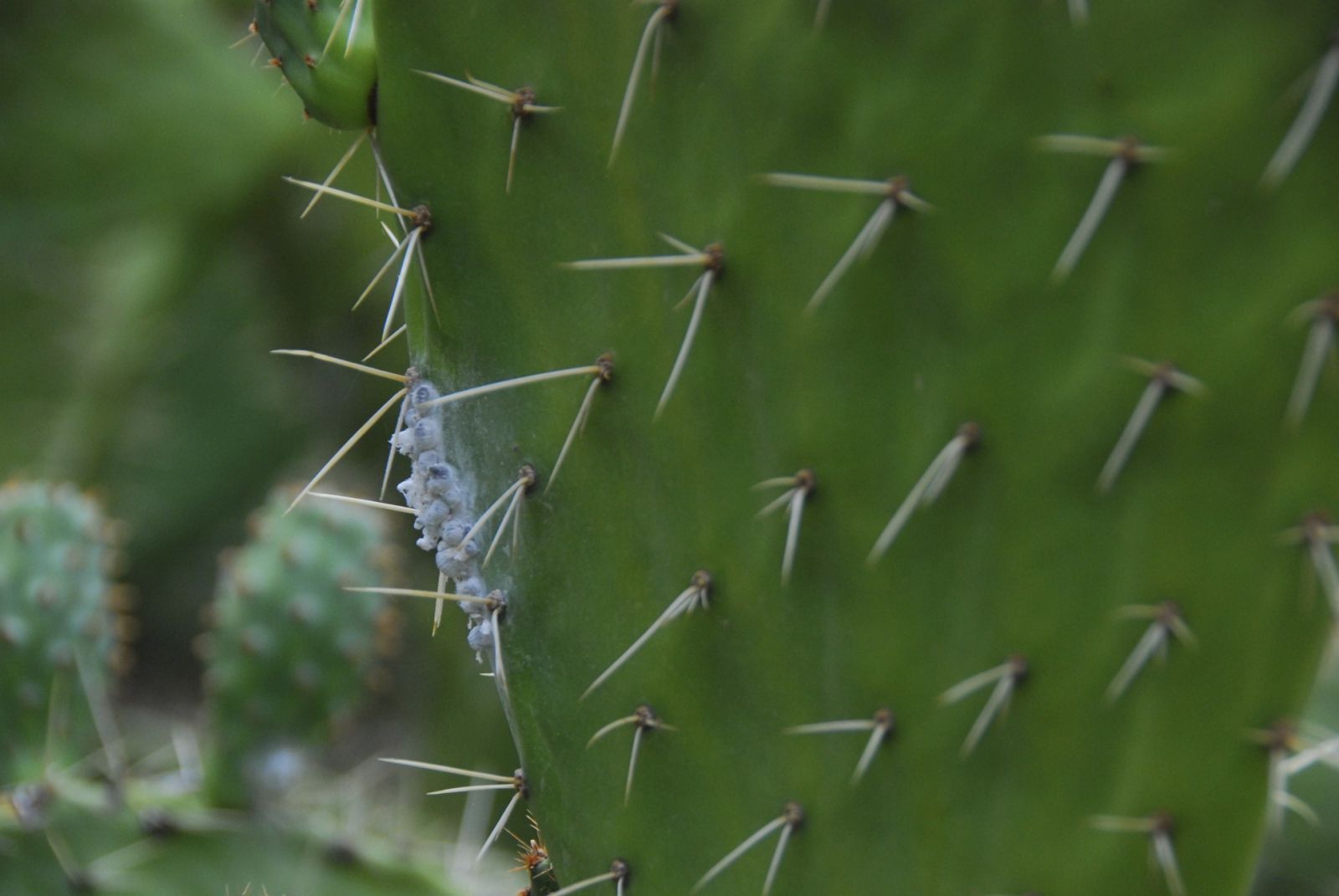Cochineal Red Dye
Posted September 9, 2010 @ 7:14am | by Melanie
Cochineal Red Dye has been valued by cultures around the world and throughout history.
It is one of the most difficult hues to create.
In the pre-Colonial times, Cochineal, produced
from the dried and pulverized bodies
of a cactus-eating scale insect, was in abundant supply
in both Peru and Mexico. When the Spaniards plundered the riches of the Americas, it created
quite a stir when they returned to Europe with the most intense and stunning red Europe had
ever seen. The value of the dye has gone through a transition since I have been closely involved
with it since the mid-eighties. The synthetic dye trend
devalued the crop and as it's very laborious
to
cultivate & harvest, it was not as popular. Over time, not only is it confirmed that no synthetic dye
could come close to the intensity of the natural red, the organic and natural dye qualities have put
the Royal Red color back to the prestigious level it once was. With people like Horst/Aveda using
it in their red lipstick and quality food companies using it as a food coloring ( yummy) the farmers are
getting a better price and there is market demand.
ArtAndes weavers are very experienced dye artists.
The rich red/purple/pink tones are historic & timeless color combinations used
prolifically in our textiles.

top- Cochineal shown growing on left side of cactus

